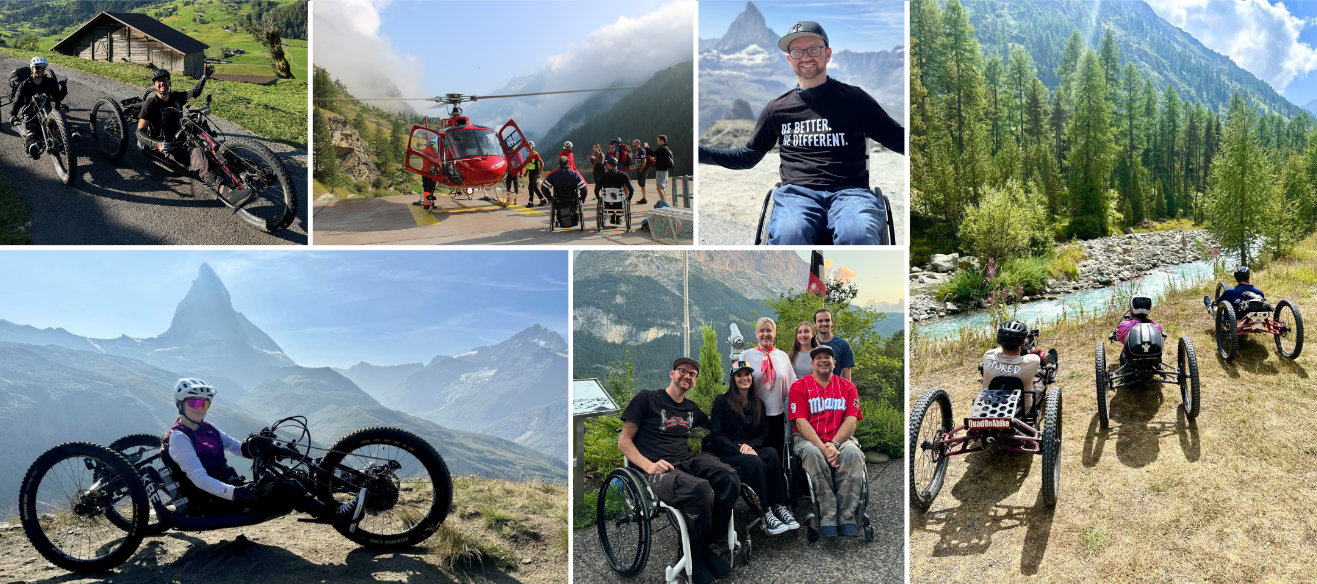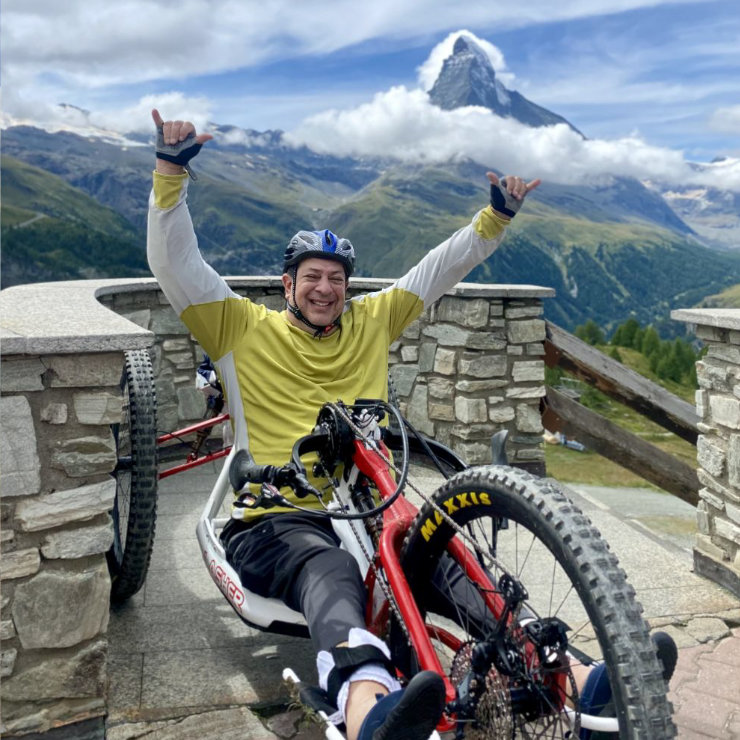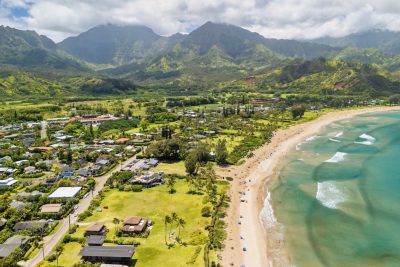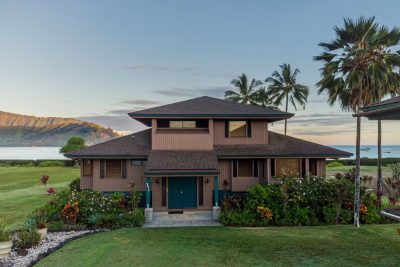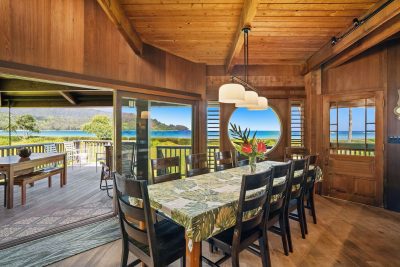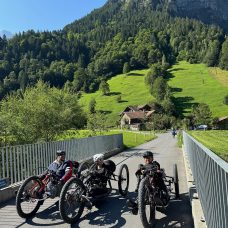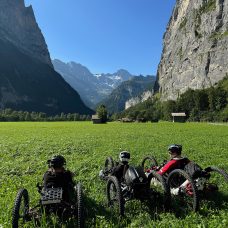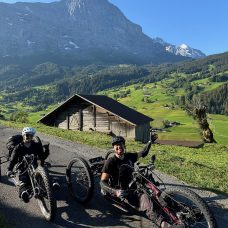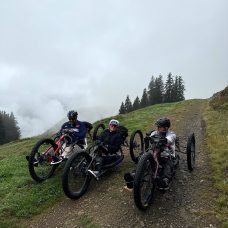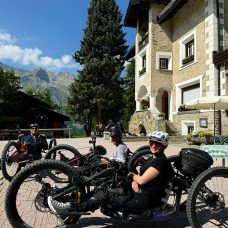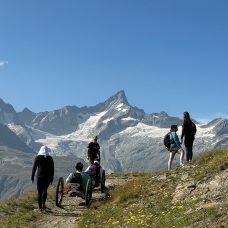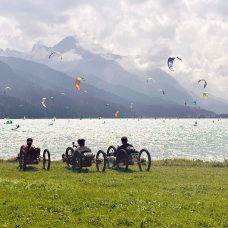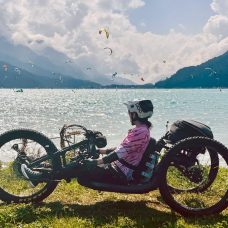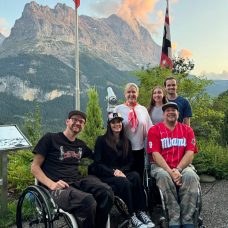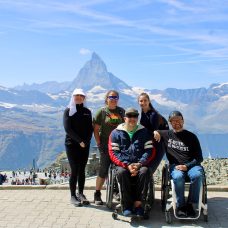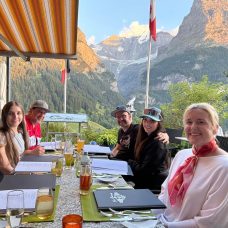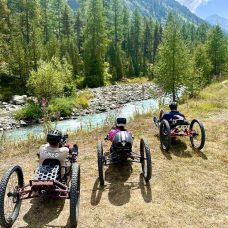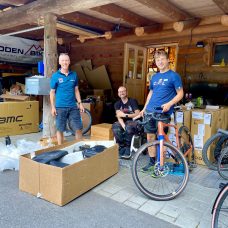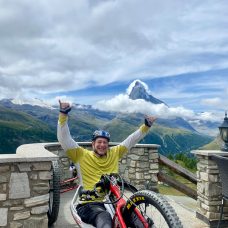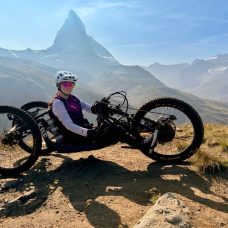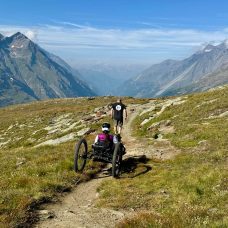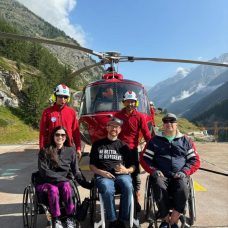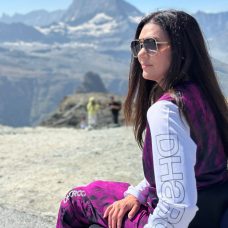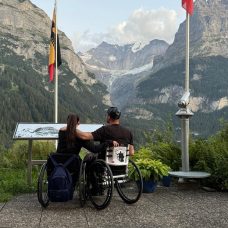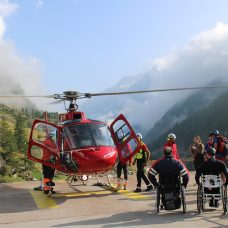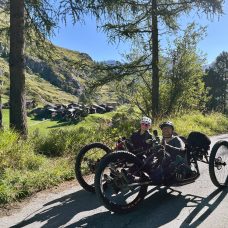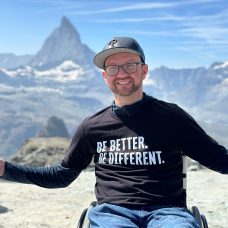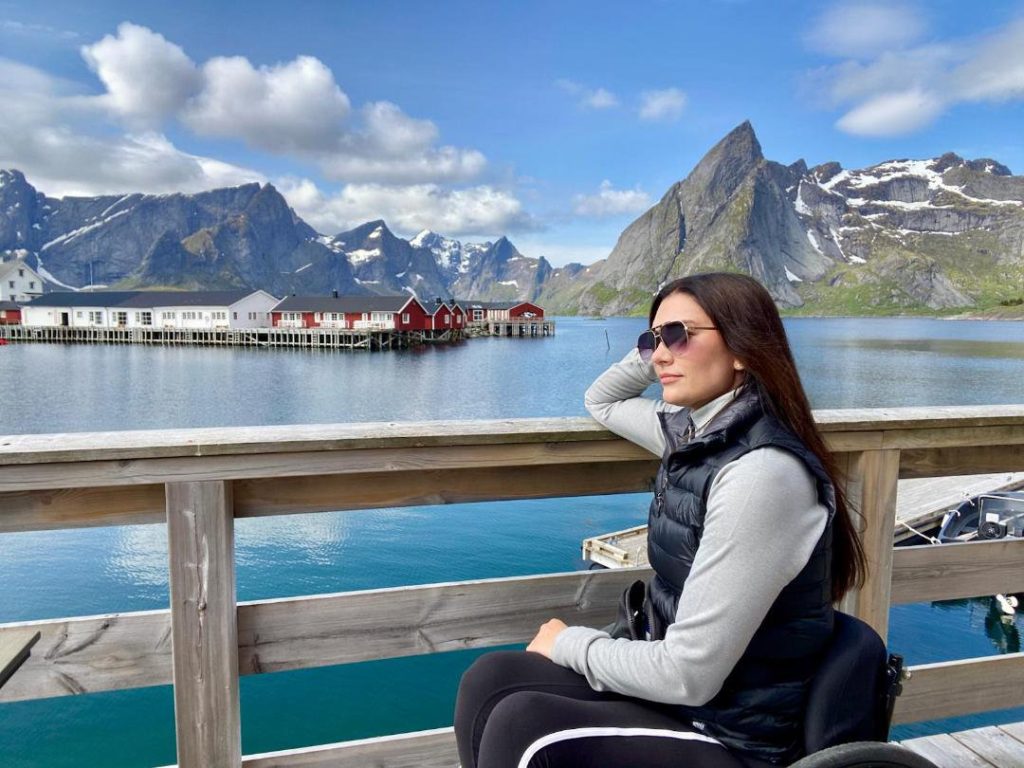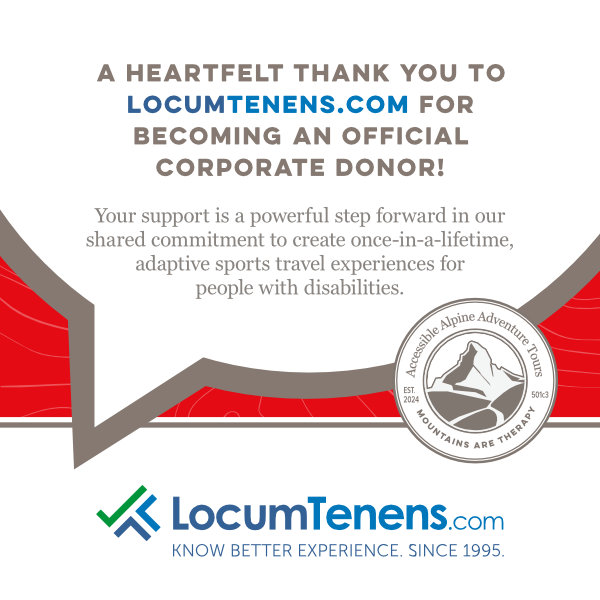Accessible Tour Destinations and Times, 2026 – 2027
NOW FULL Tour 1 : Hawaii Paradise Accessible Surfing and Kayaking Tour – Beach Front With Private Chef
Hanalei Bay, nestled on the north shore of Kauai, Hawaii, is a breathtaking destination where lush emerald mountains meet a crescent-shaped stretch of golden sand and crystal-clear turquoise waters. The bay’s serene beauty is accentuated by cascading waterfalls, vibrant tropical foliage, and the ever-changing play of light on the water, creating a tranquil yet awe-inspiring atmosphere. Hanalei Bay’s natural splendor, combined with its gentle waves and welcoming community, makes it a truly unforgettable place for travelers with disabilities who are seeking both relaxation and adventure.
Kauai offers a diverse range of kayaking options, and the Wailua River is particularly popular, providing a scenic and relatively gentle route through lush rainforest and past waterfalls, with opportunities to stop for a swim. For more advanced paddlers, the island’s dramatic Na Pali Coast offers guided sea kayaking tours, where participants can explore sea caves, secluded beaches, and encounter marine wildlife.
Enjoy convenient accommodations in an accessible, 6 bedroom ocean-front home with private chef for all meals.
April 22 – May 2 (10 Nights)
Hanalei Bay, Kauai
- April 22: meet guides in Lihue and drive to Hanalei Bay
- April 23-May 1 daily Northshore surf, kayak, sight seeing and snorkel options depending on weather, interest, and ability.
- May 2: drive to Lihue for flight home
Sorry, this tour now full.
Tour 2: Lofoten Archipelago Accessible Kayaking Tour, Norway

The Lofoten Archipelago on the west coast of Norway above the artic circle has crystal clear water that touches soaring mountains. This accessible kayaking trip has one guide per mobility-challenged guest. We also encourage family and friends to join. Places far off the normal vacation grid, such as Henningsvaer and Reine, are made accessible with physical assistance and adaptive equipment. Specially designed seats and tandem kayaks allow people with disabilities to enjoy the majestic beauty of the artic ocean and surrounding mountains. Join us in 2026 and experience the therapeutic power of Norwegian fjords.
Henningsvaer – experience an upscale Norwegian fishing village in a cozy robuer (fisherman’s cottage). Some of Norway’s most respected chefs provide sea-to-table delicacies each night, while guests participate in adaptive kayaking during the day – from 3 unique launch sites. Midnight sun kayak tour also available.
Reine – home to some of the most dramatic mountain waterfalls, this town also features upscale fishing cottages with full kitchens. Local kayaking guides navigate the fjord routes to ensure calm waters and favorable currents for paddlers. Enjoy Lofoten’s only 5 star restaurant, offering local greens, seaweed, and fish accompaniments with creative, haute cuisine presentations.
May 18 – May 30, 2027 (12 Nights)
Destinations: Reine and Henningsvaer, Norway
Beyond Belief Kayaking Journey Above Artic Circle
- May 18: meet guides in Oslo
- May 19: morning flight to Narvik then bus to Reine
- May 20-23 kayak fjords from Reine
- May 24: travel by bus to Henningsvaer
- May 25–28: kayak fjords from Henningsvaer
- May 29: bus to Narvik then flight to Oslo
- May 30: flight home
Click here to request more information.
Tour 3: Switzerland Accessible Biking Tour
 Nestled between Lake Sils and Lake Silvaplana, Sils Maria is surrounded by lush meadows that burst into bloom as the snow recedes in June. Bikers can enjoy gentle lakeside paths or ascend into the Val Fex, a car-free valley renowned for its wildflowers and panoramic views of the Engadine mountains. The crystal-clear waters, larch forests, and the backdrop of the majestic Piz Corvatsch create a serene environment ideal for both leisurely biking and more challenging trails.
Nestled between Lake Sils and Lake Silvaplana, Sils Maria is surrounded by lush meadows that burst into bloom as the snow recedes in June. Bikers can enjoy gentle lakeside paths or ascend into the Val Fex, a car-free valley renowned for its wildflowers and panoramic views of the Engadine mountains. The crystal-clear waters, larch forests, and the backdrop of the majestic Piz Corvatsch create a serene environment ideal for both leisurely biking and more challenging trails.
Zermatt, at the foot of the iconic Matterhorn, is a mountain biker’s paradise in June as the high trails become accessible and the valleys are alive with greenery. The Five Lakes trail is a favorite, offering reflections of the Matterhorn in pristine alpine lakes and opportunities to spot marmots and ibex. The Gornergrat ridge, reached by cogwheel train, provides sweeping views of glaciers and over 20 peaks above 4,000 meters. Zermatt’s blend of world-class scenery, well-marked trails, and vibrant mountain culture make it an unforgettable destination for early summer biking.
Mürren, perched high above the Lauterbrunnen Valley, offers a dramatic setting for adaptive biking. The trails provide breathtaking vistas of the Eiger, Mönch, and Jungfrau peaks. Mürren’s car-free charm and the accessibility of cable cars to higher elevations make it a perfect base for exploring the Bernese Oberland’s rugged beauty.
Enjoy the alps in 5-star Swiss Hotels with assistants who make the logistics of mountain travel seamless for all.
July 19 – July 31, 2027 (12 Nights)
Destinations: Sils Maria, Zermatt and Muerren, Switzerland
Biking the Best of Switzerland in Peak Flower Season
- July 19: meet guides in Zürich by 10 a.m. and travel by private bus to Sils Maria
- July 20-22: bike the Upper Engadine Valley and Bernina Alps
- July 23: travel by private bus to Zermatt
- July 24: bike above Matter Valley with incredible views of Matterhorn
- July 25: experience the heart of the Alps by helicopter
- July 26: visit the famous Gornergrat with amazing views then afternoon bike ride
- July 27: travel by private bus to Lauterbrunnen then cable-car to Muerren
- July 28-30: enjoy by bike the unbelievable beauty of the Jungfrau Region
- July 31: travel by private bus to the Zürich Airport arriving by 10:30 a.m.
Click here to request more information.
